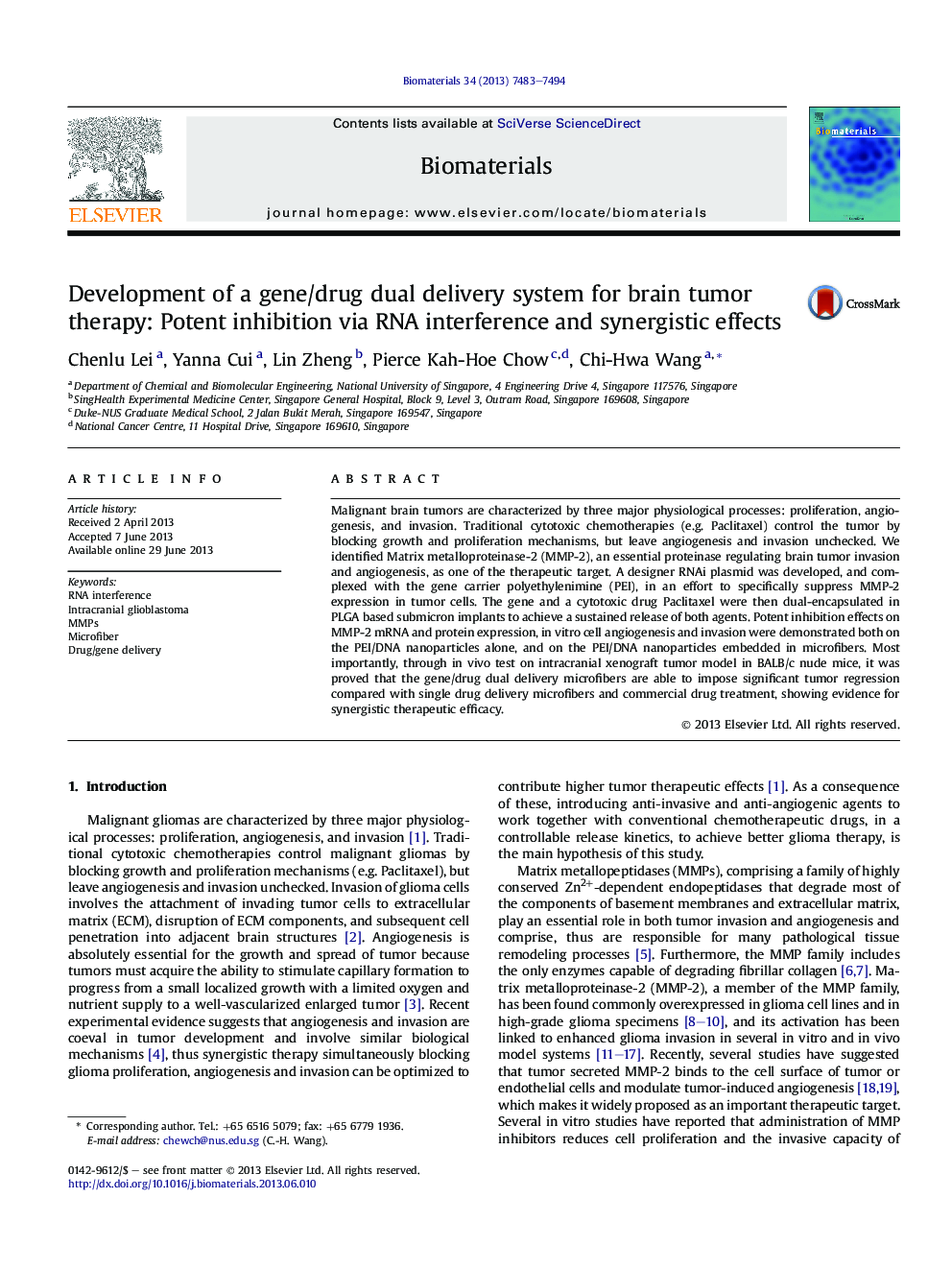| Article ID | Journal | Published Year | Pages | File Type |
|---|---|---|---|---|
| 10228716 | Biomaterials | 2013 | 12 Pages |
Abstract
Malignant brain tumors are characterized by three major physiological processes: proliferation, angiogenesis, and invasion. Traditional cytotoxic chemotherapies (e.g. Paclitaxel) control the tumor by blocking growth and proliferation mechanisms, but leave angiogenesis and invasion unchecked. We identified Matrix metalloproteinase-2 (MMP-2), an essential proteinase regulating brain tumor invasion and angiogenesis, as one of the therapeutic target. A designer RNAi plasmid was developed, and complexed with the gene carrier polyethylenimine (PEI), in an effort to specifically suppress MMP-2 expression in tumor cells. The gene and a cytotoxic drug Paclitaxel were then dual-encapsulated in PLGA based submicron implants to achieve a sustained release of both agents. Potent inhibition effects on MMP-2 mRNA and protein expression, in vitro cell angiogenesis and invasion were demonstrated both on the PEI/DNA nanoparticles alone, and on the PEI/DNA nanoparticles embedded in microfibers. Most importantly, through in vivo test on intracranial xenograft tumor model in BALB/c nude mice, it was proved that the gene/drug dual delivery microfibers are able to impose significant tumor regression compared with single drug delivery microfibers and commercial drug treatment, showing evidence for synergistic therapeutic efficacy.
Keywords
Related Topics
Physical Sciences and Engineering
Chemical Engineering
Bioengineering
Authors
Chenlu Lei, Yanna Cui, Lin Zheng, Pierce Kah-Hoe Chow, Chi-Hwa Wang,
